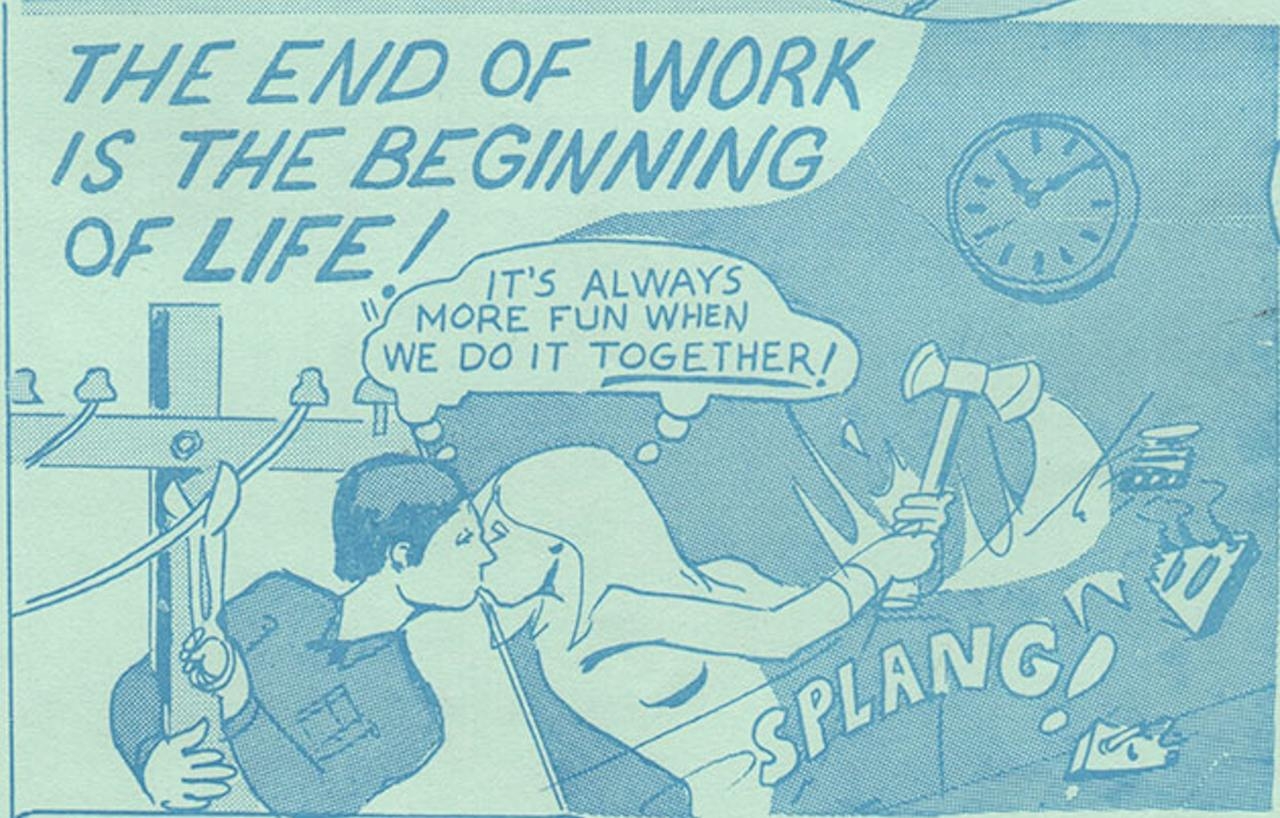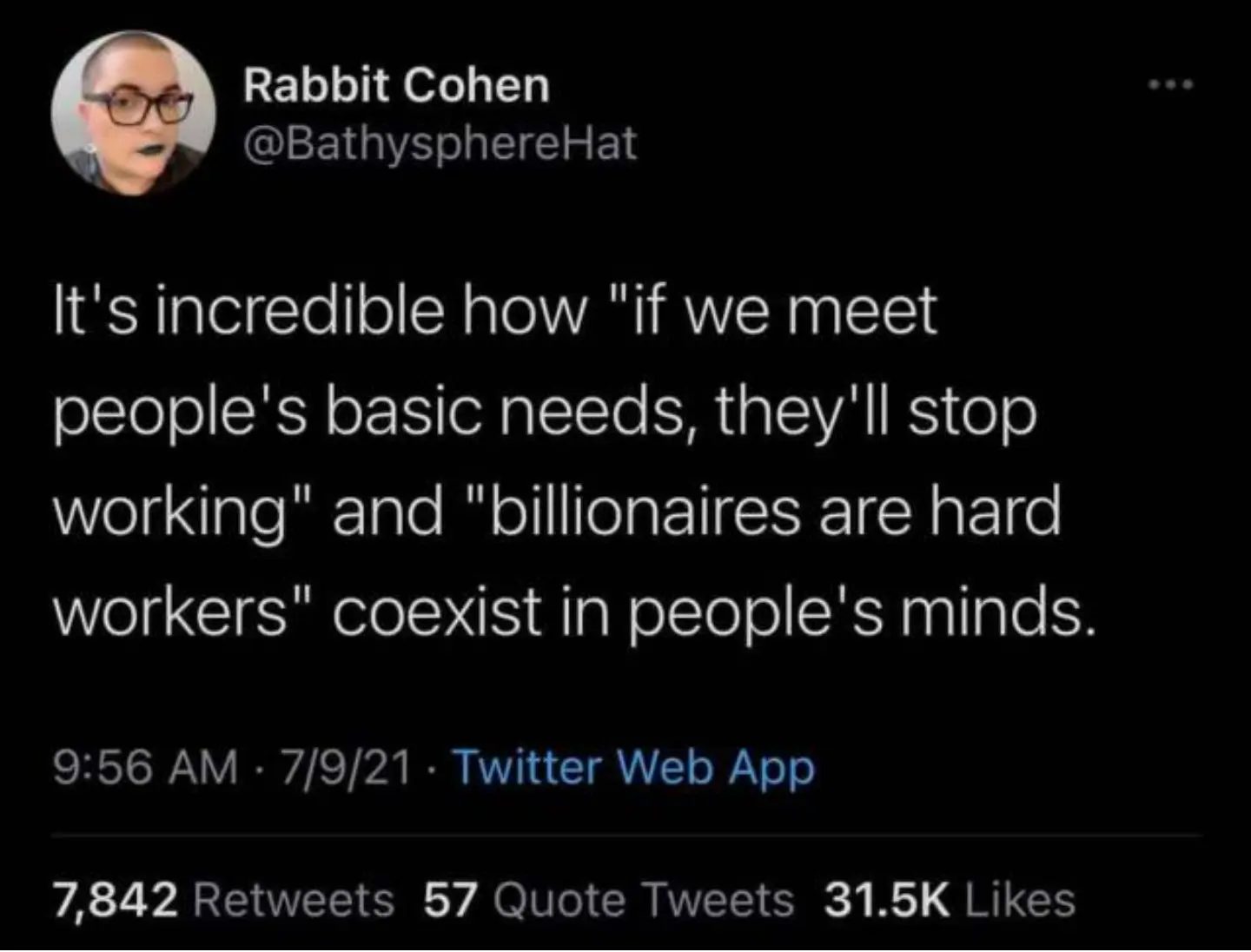Antiwork
For the abolition of work. Yes really, abolish work! Not "reform work" but the destruction of work as a separate field of human activity.
To save the world, we're going to have to stop working! — David Graeber
A strange delusion possesses the working classes of the nations where capitalist civilization holds its sway. ...the love of work... Instead of opposing this mental aberration, the priests, the economists, and the moralists have cast a sacred halo over work. — Paul Lafargue
In communist society, where nobody has one exclusive sphere of activity but each can become accomplished in any branch he wishes, society regulates the general production and thus makes it possible for me to do one thing today and another tomorrow, to hunt in the morning, fish in the afternoon, rear cattle in the evening, criticise after dinner, just as I have a mind, without ever becoming hunter, fisherman, herdsman or critic. — Karl Marx
In the glorification of 'work', in the unwearied talk of the 'blessing of work', I see the same covert idea as in the praise of useful impersonal actions: that of fear of everything individual. — Friedrich Nietzsche
If hard work were such a wonderful thing, surely the rich would have kept it all to themselves. — Lane Kirkland
The bottom line is simple: all of us deserve to make the most of our potential as we see fit, to be the masters of our own destinies. Being forced to sell these things away to survive is tragic and humiliating. We don’t have to live like this. ― CrimethInc










